Interview: Director Leigh Silverman's Always SEARCHING FOR INTELLIGENT LIFE IN THE UNIVERSE & Beyond
Lily Tomlin and Jane Wagner’s re-imagined The Search for Signs of Intelligent Life in the Universe has opened at the Mark Taper Forum to audience and critics’ raves
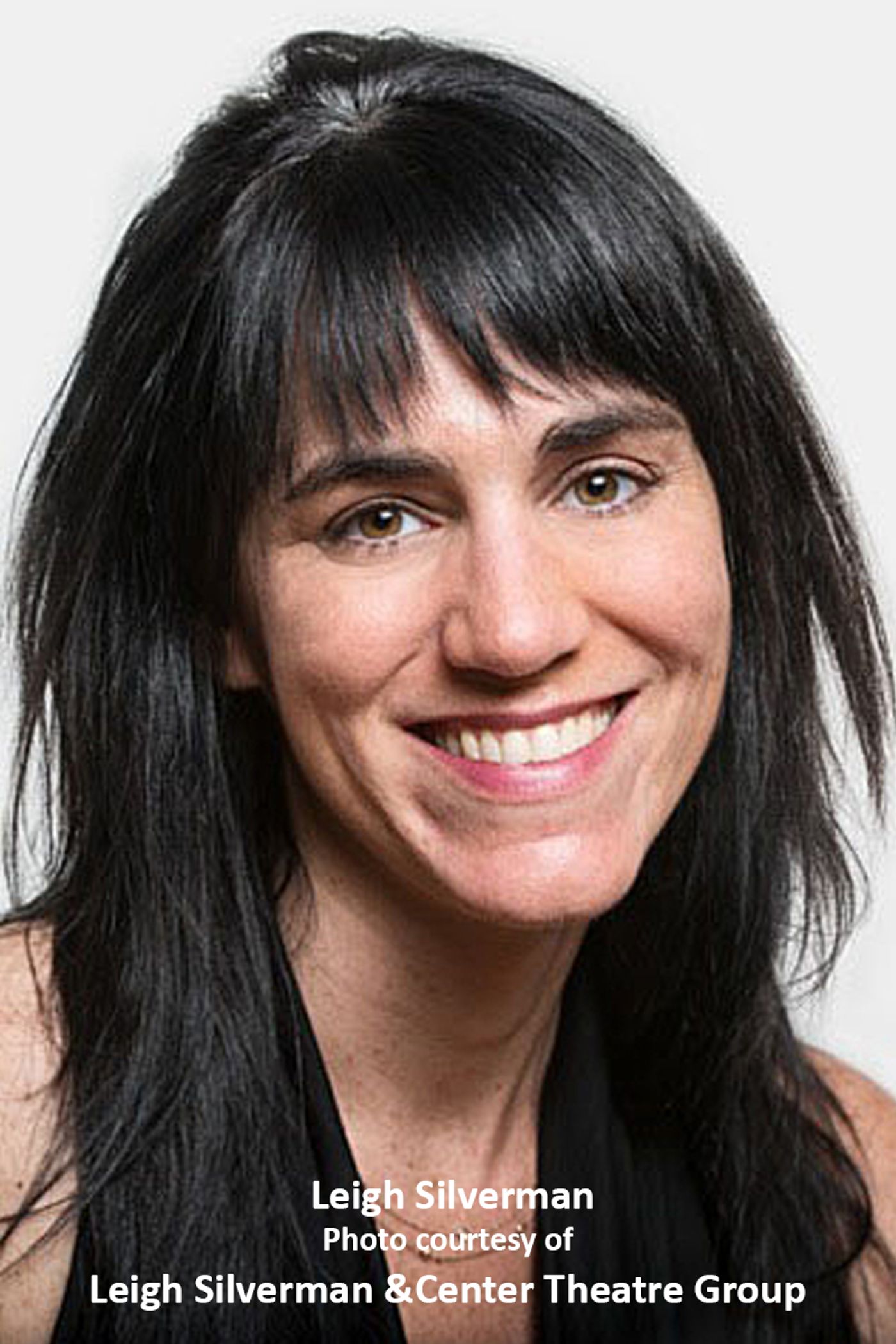
Lily Tomlin and Jane Wagner's re-imagined The Search for Signs of Intelligent Life in the Universe has opened at the Mark Taper Forum to audience and critics' raves. Leigh Silverman directs this one-woman show starring Saturday Night Live's Cecily Strong. I got to chat with Leigh while she was making her way home amidst the hustle and bustle of the New York City streets.
Thank you for taking the time for this interview, Leigh!
Thank you so much! Thanks for your time!
You flew out to L.A. for the opening and now you're back in New York.
Any specific project cause the quick turnaround?
Well, we had a full rehearsal process in L.A., so I was there for a full month. Then I came back and now I'm working at the Vineyard. I'm doing David Cale's play Sandra which is a kind of companion piece to another show of his that I directed called Harry Clarke.
What cosmic forces brought you together with this production of The Search for Signs of Intelligent Life in the Universe?
The very best cosmic forces as far as I'm concerned. It was a play that I've come back to over and over again during my life. I saw it when I was 11 at the Kennedy Center, and one of the many pre-Broadway, post-Broadway tours Lily did. It was 1987. It was a play that really expanded my mind about what theatre could be. I just was so blown away. It was transformational. I had a very deep connection to it and thought it was really the most profound texts that I had read basically since going to Hebrew school. I was like, 'Okay, this is the jam!' and I've just gone back to the text at different times in my life. I've had the opportunity to meet Lily at different times in my life, and it's just been a thing that I have always felt so compelled towards. Then when we got to the kind of depths of the pandemic, one of the depths of the pandemic, who knows how to really categorize that kind of thing, I was rereading it. It's so much about we looking at life through the lens of total nihilism and complete optimism. That paradox was so meaningful to me then and has been so meaningful to me in my life. Then I was in a casual conversation with The Shed. They were looking for a show that would reopen their season and I said, 'Oh, you know, someone should do a revival of Search for Signs because that's really the text we want to do right now.' That really began this whole journey that resulted in us doing the show last year in The Shed and then bringing a new production of it to L.A. at the Taper.
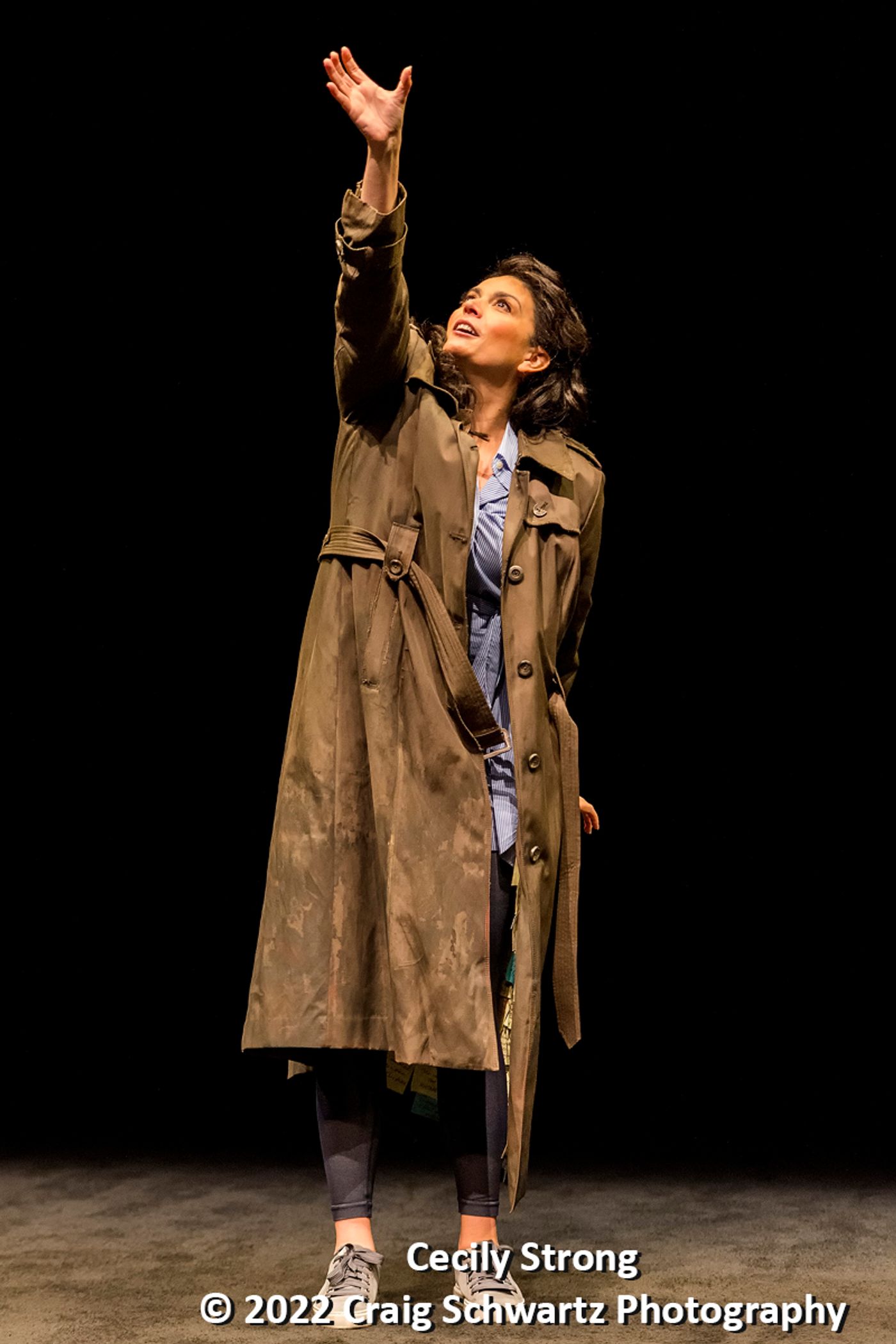 Last winter it was the first show back. It was the height of Omicron when we started rehearsal. The things that we made us laugh then, the things that make us laugh now, our state of mind then, our state of mind now, the show is porous enough, expansive enough and sustaining enough that it's something that every time Cecily and I've come back to it, we've just found it to be weirder, wilder, deeper, more profound and speaking more directly to our current moment that even before.
Last winter it was the first show back. It was the height of Omicron when we started rehearsal. The things that we made us laugh then, the things that make us laugh now, our state of mind then, our state of mind now, the show is porous enough, expansive enough and sustaining enough that it's something that every time Cecily and I've come back to it, we've just found it to be weirder, wilder, deeper, more profound and speaking more directly to our current moment that even before.
Speaking of the pandemic, a number of productions have increased their number of understudies to be able to continue performances without going dark. Do you have a understudy for Cecilia?
We do not have an understudy for Cecily. We have understudies for all the stage management and for all the people backstage who run the show, which is a surprising number, considering it's a solo show. I think the feeling was that without Cecily, it was a kind of bummer of a proposition for anybody to take on. So, we decided not to go that way.
Where did you first cross paths with Jane Wagner and Lily Tomlin?
Jane and I had never crossed paths. We actually just met for the first time last week (at the Taper opening), but Lily came on as an executive producer of a lesbian culture piece that I directed in 2006 called The Beebo Brinker Chronicles.
Chronicles was a play based on these lesbian cult books that came out in the 50s by a woman named Ann Bannon. Kate Moira Ryan and Linda S. Chapman together compressed a series of five books into a two-act play. We had done it downtown on Fourth Street and then it moved to what was then 37 Arts, (it's now the Baryshnikov Center) and Lily came on as an executive producer with our then producer Harriet Levy. I got to meet Lily at opening night. She would hang out with the cast quite a bit. We have a lot of pictures of her with all of us. And of course, we were also starstruck. When I saw her the other night of the show, I was reminding her about that night and you know, she gave me a very perfunctory nod. I don't think it's quite meant the same to her as it did to all of us. But we really love meeting her.
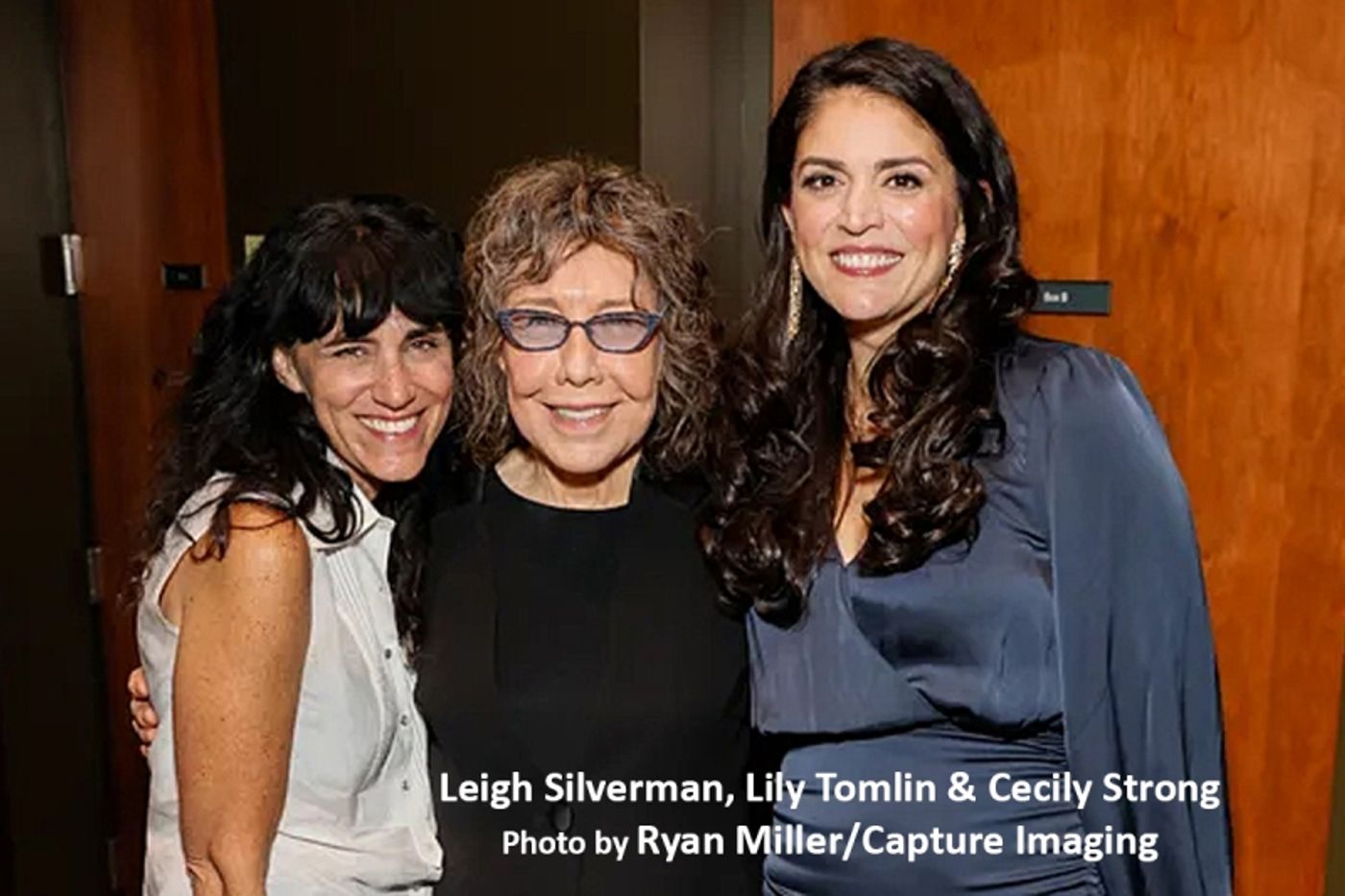 When did you first meet Cecily Strong?
When did you first meet Cecily Strong?
I met Cecily over Zoom. She was finishing up her book, her beautiful, beautiful book memoir that came out last year. She was doing SNL. She had been living upstate during the pandemic. I just felt such an instant connection with her. And I was like, 'Okay, well, if we have this kind of mind meld over Zoom, then maybe when we actually get in the room, it's either gonna go terribly wrong, or the deal is gonna be solidified.' So she's really just an amazing, amazing collaborator and friend and person. To get a second chance in this moment, to get back into it and to do it again is so great, and she's having a very exciting run out there in L.A.
As distinctive a stamp Lily Tomlin put on her Intelligent Life characters, what was your primary direction to Cecily to tackle this role to make it her own?
She was never gonna do Lily. That's the whole point of trying to bring the show back. I think that's partly why Lily and Jane wanted us to do this revival. We wanted to show how the text can stand on its own. I think Lily, for years and years, has been so closely associated with it that people mistake her for having written it. And they've never wanted or desired for the piece to be separated from her in that way. I think they've come to realize, or maybe we were just persuasive enough, that that now is the time. They've been really excited for us too. They've said that what they love most about the show has been the things that are so different from anything that they did. That's our approach. That what they wanted was something that didn't feel like we were walking in Lily's shoes but instead that we were holding closely and honoring Lily in all kinds of ways. She's on our poster, there are things that she did that we pay homage to in the show. We really come at it a very different way. There would be no way to replicate Lily Tomlin. Why even try like that? That's like signing yourself up for a world of pain. There's no way to do that. I also felt like Cecily is in a very different way and in her own way a magical unicorn of a performer. She can do all the things that the play requires: the gravitas, the ridiculousness, the direct communication to the audience, bringing people in the storytelling, the wildness and the heart and the soul of these people who she's portraying. I just don't think there are very many people who can do it. And maybe there's just one other besides Lily, and I believe it's Cecily Strong.
Do you know of any plans to take Intelligent Life to other venues?
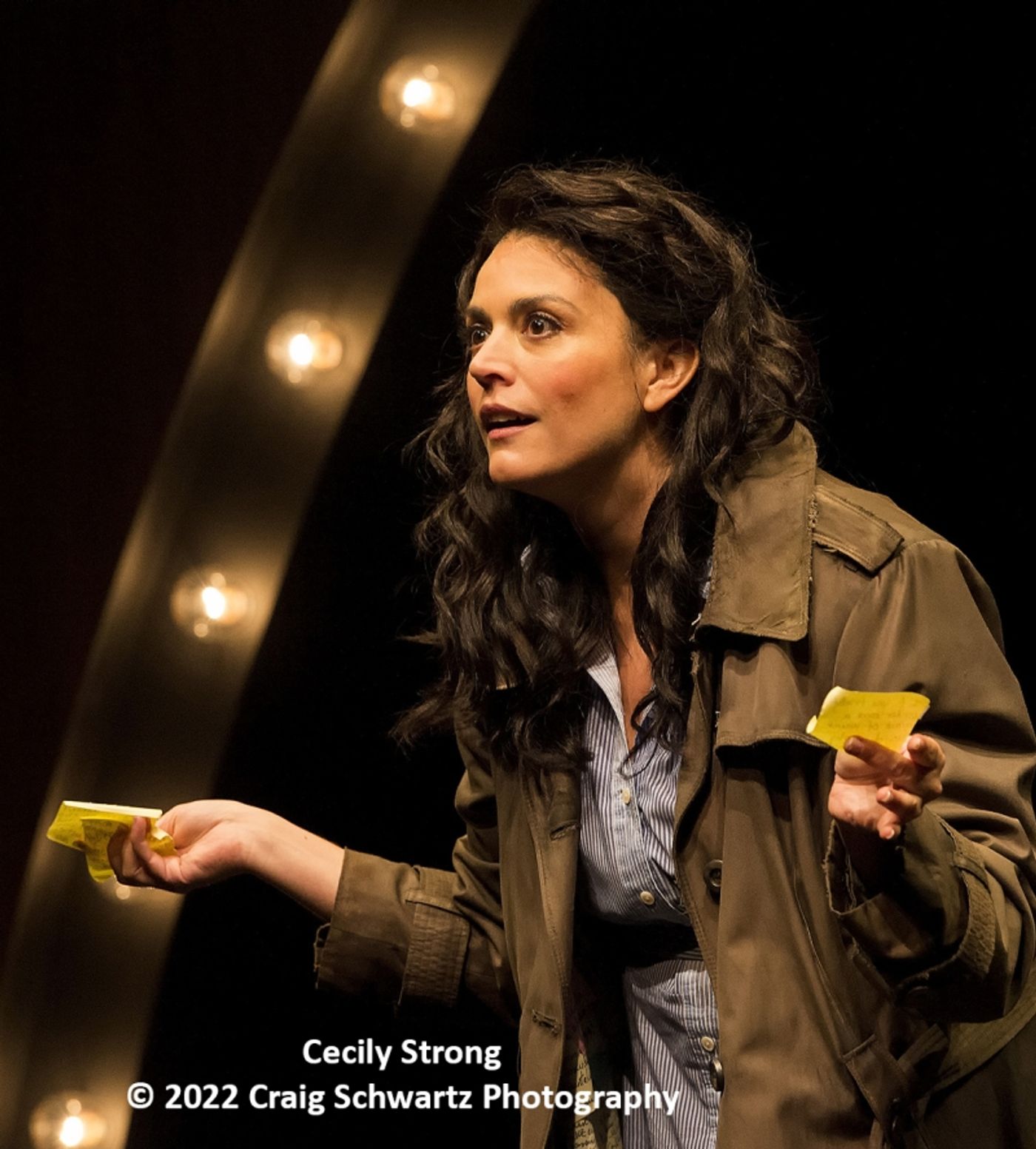 As long as Cecily wants to stay on this weird ride, I'm on it with her. We were really excited about the response in L.A. We were really excited about the response in New York. We started previews in the height of Omicron Christmas week last year. It was a really hard time. By the time we got through to opening we were one of three shows that was running in New York because everything else was down with COVID. It was a scary time. So for us to just be able to step into this experience was so much fun with so much abandon and so much freedom. Finally to have an audience that wants to be entertained, that isn't scared for its life, frankly, by coming into the theater. It feels like a new time and a new experience. So as long as Cecily wants to keep showing off their post-its, I'm there.
As long as Cecily wants to stay on this weird ride, I'm on it with her. We were really excited about the response in L.A. We were really excited about the response in New York. We started previews in the height of Omicron Christmas week last year. It was a really hard time. By the time we got through to opening we were one of three shows that was running in New York because everything else was down with COVID. It was a scary time. So for us to just be able to step into this experience was so much fun with so much abandon and so much freedom. Finally to have an audience that wants to be entertained, that isn't scared for its life, frankly, by coming into the theater. It feels like a new time and a new experience. So as long as Cecily wants to keep showing off their post-its, I'm there.
This is not your first time directing for the Center Theatre Group. You helmed In The Wake at the Kirk Douglas Theatre in 2010, and David Henry Hwang's Soft Power at the Ahmanson in 2018.
Actually, this is my fifth show there. I did Tanya Barfield's play Of Equal Measure. I did Lisa Kron's play In The Wake. I did Soft Power and I did Yellow Face at the Taper in 2007. I believe I was told by somebody on the crew that I'm one of the very, very few directors, if not the only one who had actually directed in all three of their spaces.
Would you share some of the highlights of collaborating with the Center Theatre Group?
I will say that one of the things that for me I love about working at CTG, in all their spaces, is that they treat all the artists who come into this space with so much respect, no matter which theater you're working in, whether it's the Ahmanson, the Douglas or the Taper. I feel like they care about the vision of artists they hire. They trust the artists they hire. They support them. They amplify their work to the best of their ability. Sometimes there wasn't a first act when they committed to doing it. Sometimes there wasn't an ending. Sometimes we thought it was going to be one kind of play and it turned into a completely other during previews and they were like, 'That's cool.' The whole point is to do a first production here. They're not invested in what others might call the quote unquote product or the success or the moveable show. They're interested in putting on a show, where process is primary, where artists are treated well, and where people feel supported no matter what stage of their career and of the process you are in. I just have never worked at another theater that has said yes to so many people and so many artists without having any real knowledge about what it is that those artists are going to make. That's not their concern. Their concern is supporting the artists that they believe in. And that's so rare. That is super rare. That is super, super rare.
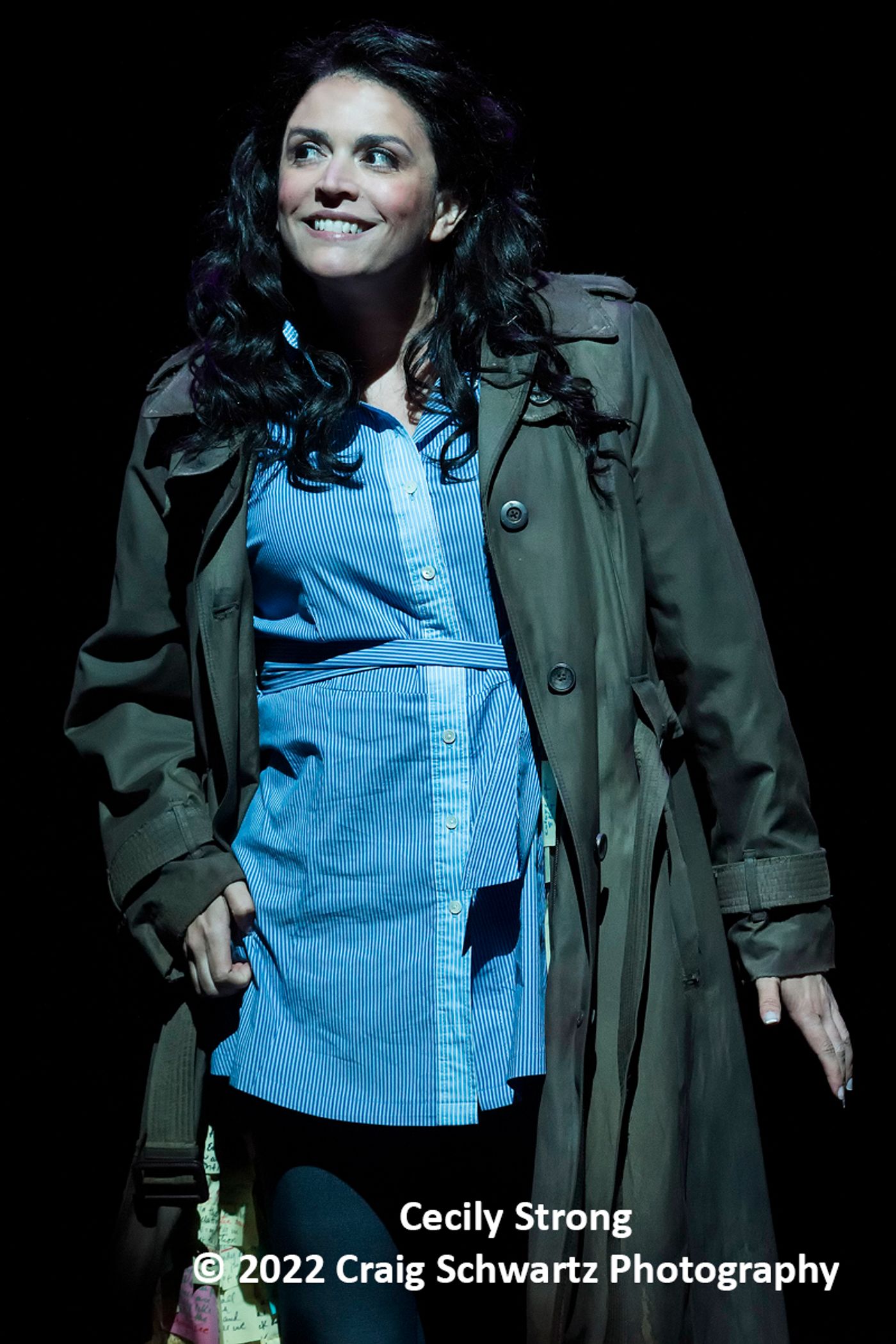 That's an incredible compliment. Do you remember when you first heard that you had won the 2011 Obie Award for your direction of In The Wake and Go Back To Where You Are?
That's an incredible compliment. Do you remember when you first heard that you had won the 2011 Obie Award for your direction of In The Wake and Go Back To Where You Are?
You know the weird thing about the Obies, both in 2011 and when I got the Lifetime Achievement or like 'Now You Can Die Award' or whatever, the last one I got in 2018. Where you are when you find out, you're standing in front of a bunch of your colleagues. You've probably had a drink or two or three. That's the fun of the Obies. There's a little bit of mystery around it. You know you're there to support the industry. You're there to support your colleagues. You're there to support the shows that you love. You're there under the guise of mystery. Sometimes you're asked to go and you don't actually win an Obie. You realize you were there because you're supporting somebody else. Also, an amazing thing about the Obies is that element of, 'Who knows why you're going to be there?'
I will say in our post-pandemic world. I think that that will change a little bit because people need to be told things in a different way these days. In the case of my two Obies, I was enormously surprised and very, very grateful. Also because it's the people who nominate you and give you the awards are your colleagues. They're not people who are outside of the field in any way.
What did you want to be in your teens? Did you ever imagine yourself directing on Broadway and at major theatres across the U.S.?
Never. I wanted to be an actor and then somebody told me that I was a terrible actor and that I should be a director. I put a lot of stake, it turns out, in what this really random person I never saw again said to me. I feel like I never thought I'd even get hired once. The last show that I did a new show Suff this spring was my 60th show. The idea that I've directed 60 shows is so in some ways completely incomprehensible.
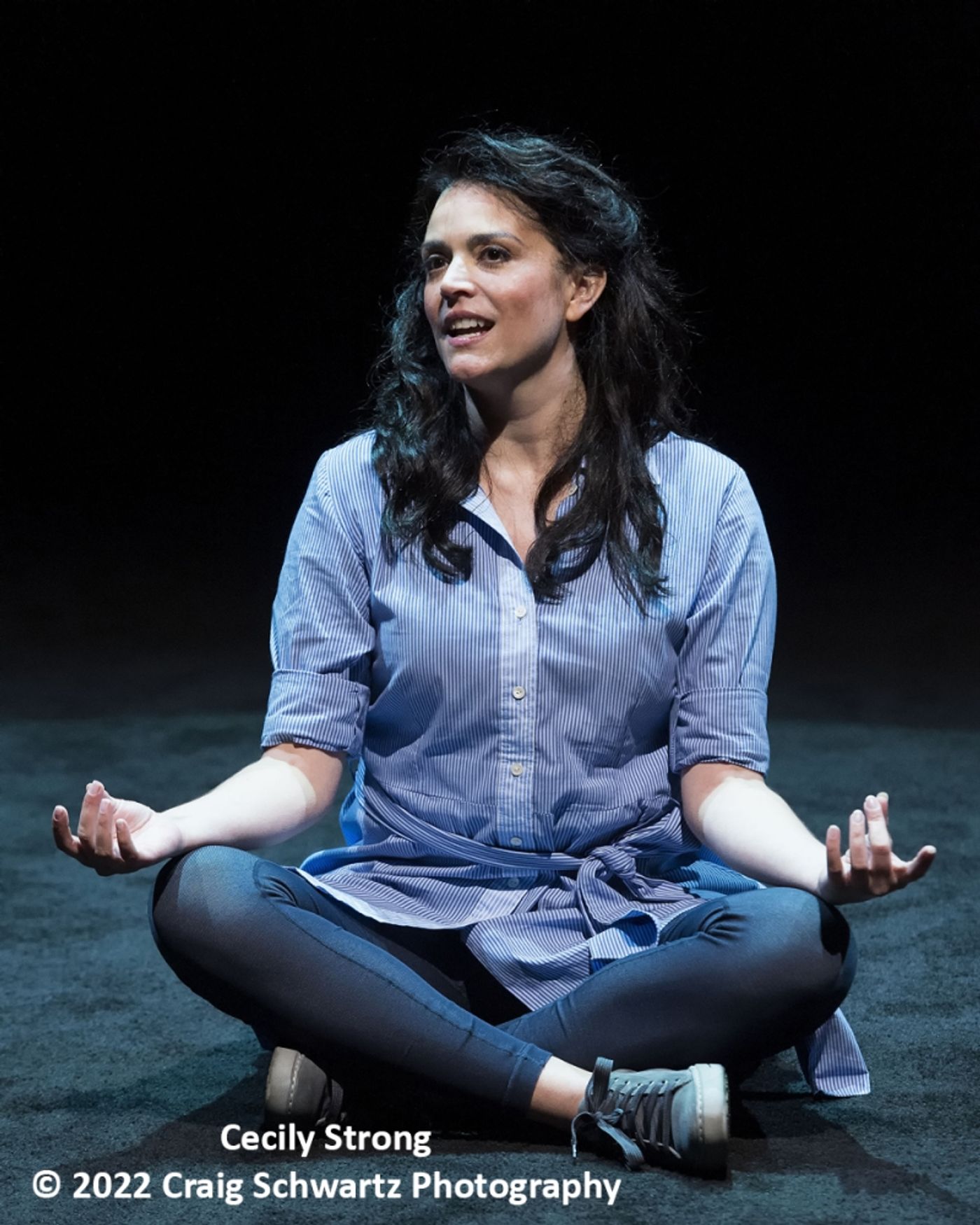 I also feel to me, the real accomplishment is that the people that I work with, want to work with me again. I have writers that I've worked with four, five, six times, sometimes more. Designers who I've done 10, 12, 15 shows with. Actors who I've done multiple shows with. That I get to be in community with these people. That they answer my call. That they call me. That they say, 'You know I'm thinking about playing this part. I'd love for you to direct.' or 'I'm writing a play about x. Can I send you the first scene of it?' I mean that to me as a success more than anything else.
I also feel to me, the real accomplishment is that the people that I work with, want to work with me again. I have writers that I've worked with four, five, six times, sometimes more. Designers who I've done 10, 12, 15 shows with. Actors who I've done multiple shows with. That I get to be in community with these people. That they answer my call. That they call me. That they say, 'You know I'm thinking about playing this part. I'd love for you to direct.' or 'I'm writing a play about x. Can I send you the first scene of it?' I mean that to me as a success more than anything else.
What was your very first directing gig?
You know, it's so funny, I just found recently my first ever paycheck that I got for directing. It was 1995. I got paid $25 for directing something at the Pennsylvania New Play Festival. Obviously, I thought that either this would be the only time I'd ever get paid, or I just forgot. Either way I still have that check. It was never cashed, and it's now framed in my office.
What show and which actor is on your wish list to direct?
Oh my gosh! I mean, there are actors that I've worked with a lot that I would love to work with again. My main collaborators are really writers. I am not a person who has really ever gone to a theater with an idea separately from a writer. I have devoted my life to new work. My collaborations and my primary relationships are with writers. So the fact that I went to a theater with an idea as more the auteur in a traditional sense of an auteur director by saying I have a production that I would like to do and I would like to do a revival of... this is really the first time that that's ever happened in me in my life, in my career. It's so special to me that actually somebody said yes to it. And then somebody else said yes to it. And then we've now done it twice. I think of myself as a kind of director inspired by the writers and the stories that they want to tell. So, it does feel like for me a real shake up to have done it this other way around.
I'm so proud of how it went. So, watch out! Maybe this is my new MO from here on out. It's really the first time that that happened. Sweet Charity happened because Sutton wanted to do it and brought it to me. I think it feels like a rite of passage in some ways. It's really, it's surprising when I think about that, actually given how old I am.
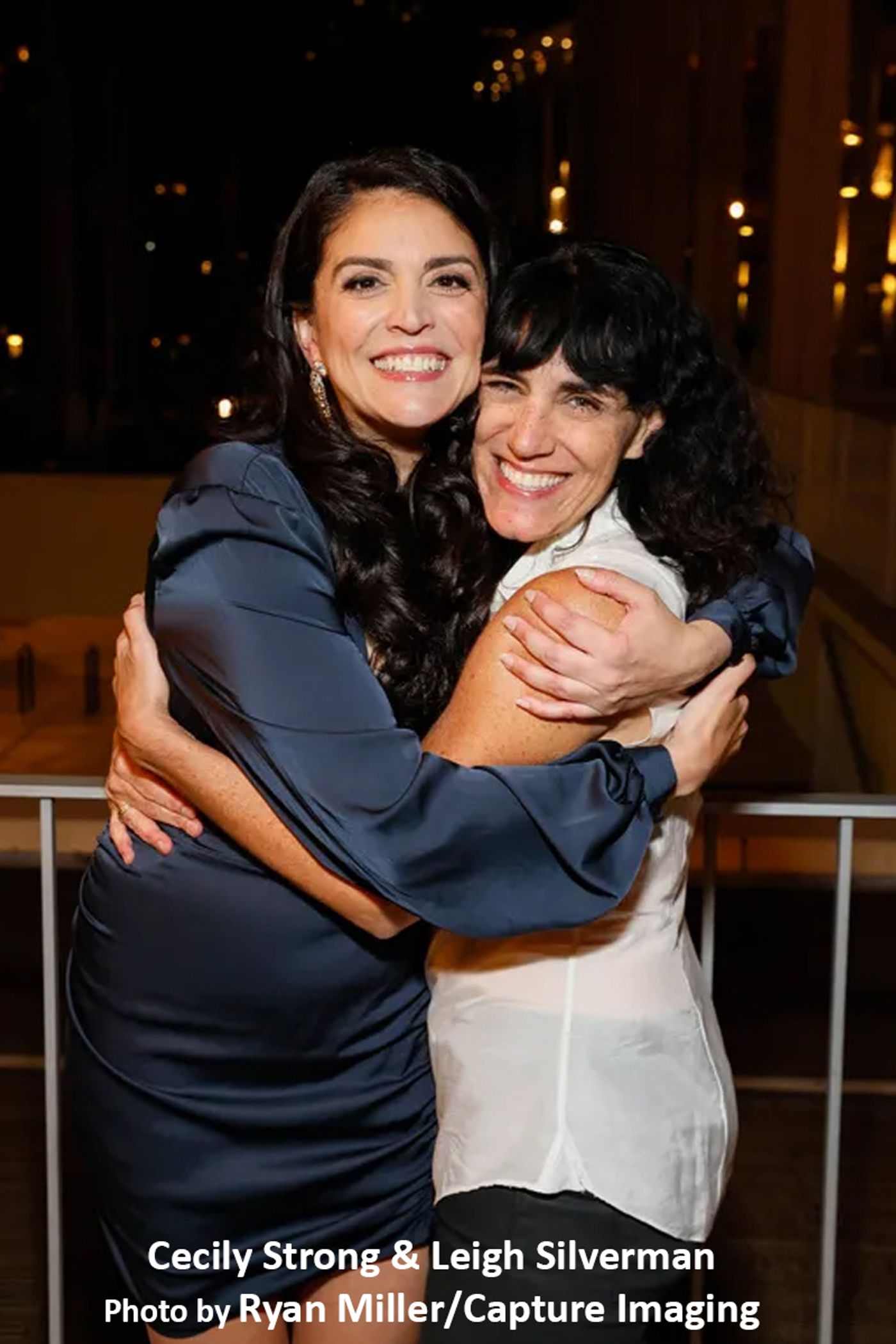 What's in the near future for Leigh Silverman besides the Vineyard?
What's in the near future for Leigh Silverman besides the Vineyard?
The Vineyard yes. I'm doing David Cales's play at the Vineyard. We start performances at the beginning of November, November 2nd. There's some other projects that I have in the works. Some that have started pre pandemic. David Hwang and I have a few projects that were cooking up. I did a musical Suffs that was in the spring that I'll be returning to work on again, which I'm very excited about, being able to get back in there.
Thank you again, Leigh!
Thank you, too! Take Care!
For tickets to the live performances of The Search for Signs of Intelligent Life in the Universe through October 23, 2022; click on the button below:
Videos

